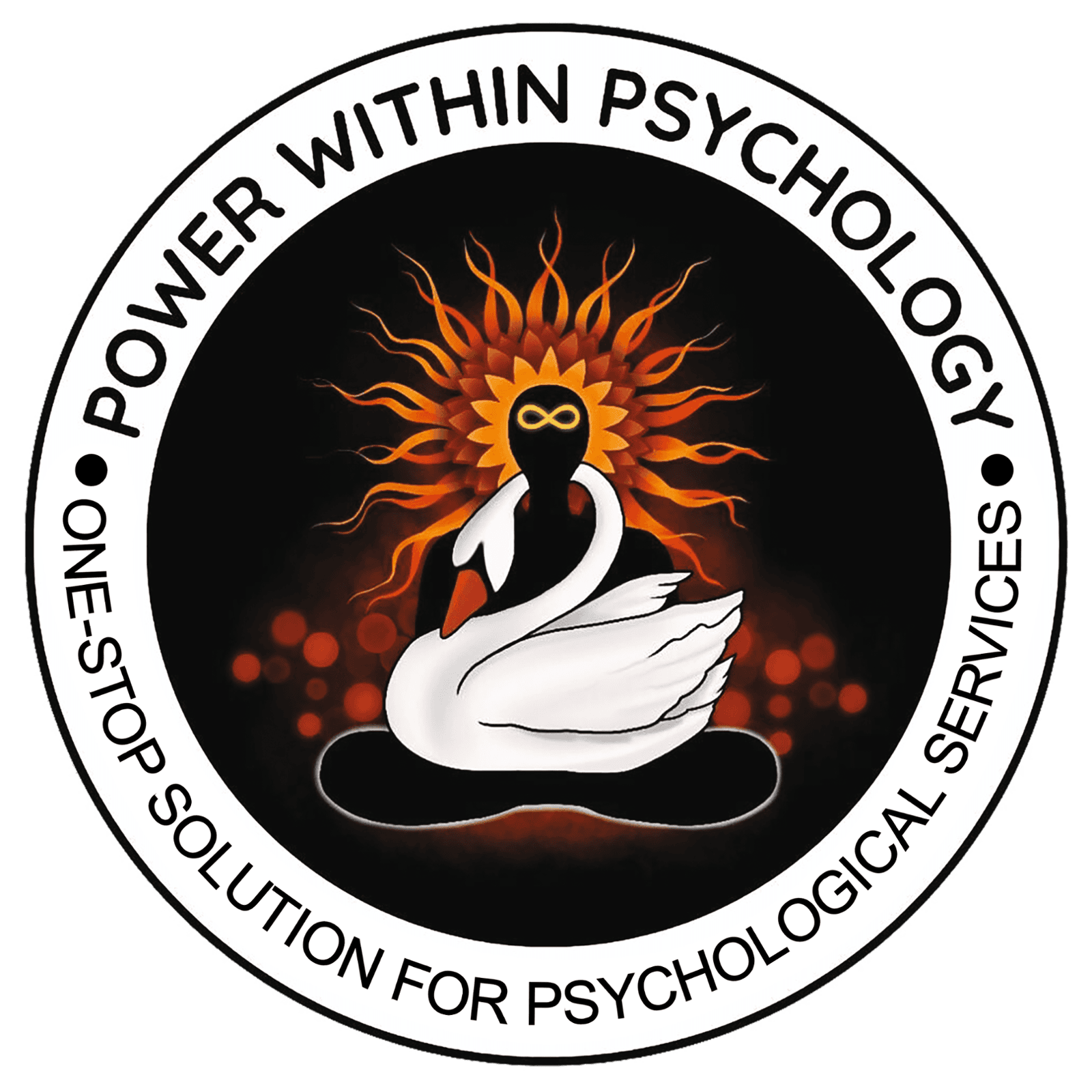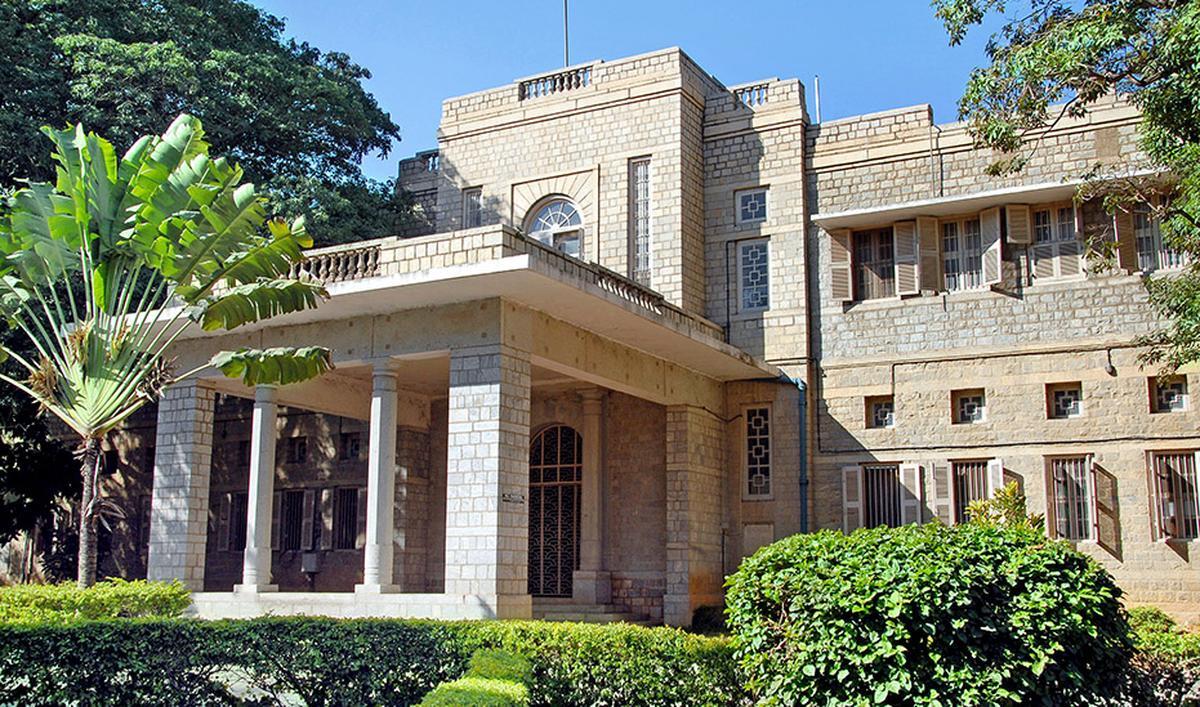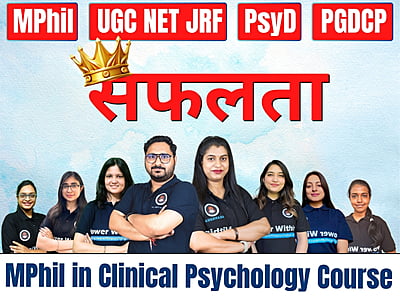The National Institute of Mental Health and Neurosciences (NIMHANS), Bangalore, has released its official notification for admission into the M.Phil in Clinical Psychology course for the academic year 2025 – 2026. Known as a top-tier institution for mental health training, NIMHANS offers a rigorous, evidence-based training program for future Clinical Psychologists.
This article provides a complete overview of the eligibility, seat matrix, selection process, course structure, and key dates, updated as per the official brochure.
📌 Important Note on Course Nomenclature
As per the latest notification issued by the Rehabilitation Council of India (RCI), the nomenclature of the course has been officially revised from M.Phil in Clinical Psychology to M.A. Clinical Psychology (2 years, RCI). However, RCI has permitted approved institutions, including NIMHANS, to continue using the name "M.Phil in Clinical Psychology"until the completion of the 2026 academic session. In due course of time, all institutions will be required to update the program name in alignment with the revised guidelines. Aspirants are encouraged to stay informed and treat both titles as referring to the same RCI-approved professional training program in Clinical Psychology.
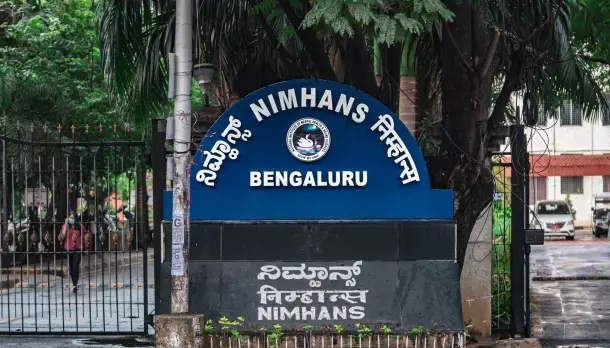
About NIMHANS
Recognized as an Institute of National Importance, NIMHANS functions under the Ministry of Health and Family Welfare, Government of India. The institute has earned national acclaim for its high-quality training and research in the fields of mental health and neurosciences. In the NIRF Rankings 2024, NIMHANS stood 4th among the top medical institutions in India. The Department of Clinical Psychology at NIMHANS is a leader in the country, offering M.Phil and Ph.D. programs to train professionals in clinical diagnosis, psychotherapy, and psychological research.
About M.Phil Clinical Psychology
Course Duration: 2 Years
The M.Phil in Clinical Psychology program at NIMHANS offers comprehensive training in both theoretical and practical aspects of clinical psychology, along with a strong foundation in research methodology. The course follows a supervised training model, with clinical postings across various specialized units such as Adult Psychiatry, Child & Adolescent Psychiatry, Family Psychiatry, Behavioural Medicine, Neuropsychology, Addiction Medicine, Community Psychiatry, and Psychiatric & Neurological Rehabilitation. Academic learning is further enriched through didactic lectures, case conferences, seminars, and journal clubs. As part of the program requirements, students must also undertake an independent research study and submit a dissertation.
Contact Information for NIMHANS: For any queries related to the M.Phil Clinical Psychology admissions at NIMHANS, candidates may reach out through the following:
📧 Email: admissions@nimhans.net
Website: http://www.nimhans.ac.in
☎️ Phone: 080-26995013
🕘 Timings: Monday to Friday, between 09:00 AM to 04:30 PM (on working days only)
Candidates are advised to contact during working hours for prompt assistance.
Eligibility Criteria
Minimum Educational Qualification
Candidates must have completed a 2-year Master's Degree in any of the following disciplines from a recognized university:
Psychology
Clinical Psychology
Applied Psychology
Counselling Psychology
Psychological Counselling
Other Requirements
- The qualifying degree must be obtained from a UGC-recognized university/institution.
- Final-year students or those awaiting final results are also eligible to apply. However, the final marksheet must be submitted on the day of admission.
Other Eligibility Conditions
a. Sponsored Category: Indian nationals who are permanent employees sponsored or deputed by the State/Central Government, Public Sector Undertakings, or recognized institutions/universities may apply under the ‘Sponsored Category’.
b. Karnataka Domicile Category: Indian nationals who are residents of Karnataka (domicile certificate required) can apply under the ‘Karnataka Domicile Category’.
c. Foreign Nationals are eligible to apply under the ‘Foreign/Sponsored Category’.
Age Limit
Maximum Age: 32 years (as on the course commencement date, i.e., 1st July 2025)
Reference Date for Age Calculation: The candidate's age will be calculated as on 01 July 2025 for the July 2025 Session.
Course-specific Age Limits: The maximum age limit for each course is specified in its respective section.
For M.Phil in Clinical Psychology, the upper age limit is 32 years.
Relaxation in Age Limit (for Reserved Categories):
SC/ST Candidates: Up to 5 years of relaxation.
OBC Candidates: Up to 3 years of relaxation.
Persons with Disabilities (PwD): Up to 5 years of relaxation. (Refer to PwBD section in the prospectus for detailed conditions.)
Sponsored Candidates: No age relaxation or reservation is applicable for candidates applying under the Sponsored Category.
Seat Matrix: Category-wise Distribution
| Course Name | Seats under Institute Stipendiary Category | Availability of Guideship Slots |
|---|---|---|
| All India Category (UR–10, EWS–3, OBC–6, SC–3, ST–1) | 23 Seats | – |
| Karnataka State Domicile Category (UR–3, OBC–1, EWS–1) | 06 Seats | – |
| Foreign / Sponsored Category | – | 03 Slots |
| Total | 29 Seats | 03 Slots |
Awards and Recognitions
Students demonstrating outstanding academic and clinical performance during the M.Phil Clinical Psychology program at NIMHANS are eligible for the following prestigious awards:
Dr. M. V. Govindaswamy Memorial Prize
Awarded to the student who secures the highest marks in the M.Phil Clinical Psychology examination.Prof. V. Kumaraiah Award
Presented to the best outgoing student in recognition of excellence in clinical work during the course.
Admission Process
The admission to the M.Phil in Clinical Psychology program at NIMHANS follows a merit-based selection processcomprising an entrance examination and document verification. The process is designed to ensure transparency, academic rigour, and equal opportunity for all eligible applicants.
1. Online Application
Candidates must apply through the official NIMHANS admission portal within the prescribed application period.
All required details such as academic qualifications, category, and contact information must be filled carefully.
Scanned copies of the relevant documents (mark sheets, certificates, photograph, signature, etc.) should be uploaded as per the guidelines.
Application Fees:
General/OBC/EWS: ₹1,500/-
SC/ST: ₹1,000/-
2. Eligibility Screening
Only those candidates who meet the minimum eligibility criteria (2-year Master’s degree in Psychology or allied fields from a UGC-recognized institution) will be allowed to appear for the entrance exam.
Final-year students are also eligible, provided they submit their final marksheet at the time of admission.
3. Entrance Examination
Mode: Offline (held only in Bengaluru city)
Pattern:
100 Multiple-Choice Questions (MCQs)
Duration: 90 minutes
Marking Scheme:
+1 for each correct answer
–0.25 for each incorrect answer (negative marking applicable)
Syllabus: Based on core areas of Psychology as per standard postgraduate curriculum.
4. Qualifying Criteria
Minimum Qualifying Marks:
UR/OBC/EWS: 50%
SC/ST/PwBD: 45%
Only those who meet the minimum cut-off will be considered for admission under the respective category.
5. Merit List and Result Declaration
The result of the entrance examination will be published on the official website as per the notified schedule.
A merit list will be prepared based on performance in the entrance exam alone.
No interview or group discussion is conducted in the selection process.
6. Document Verification & Admission
Shortlisted candidates will be called for in-person verification of original documents at the time of admission.
Candidates must carry all original certificates, mark sheets, age proof, category certificate (if applicable), and proof of identity.
7. Commencement of Course
After successful verification, candidates will be formally admitted, and the course will commence as per the academic calendar.
Important Dates
| Event | Date |
|---|---|
| Notification Release | 01 March 2025 |
| Last Date to Apply | 31 March 2025 |
| Entrance Exam Dates | 24–25 May 2025 |
| Result Declaration | 09 June 2025 |
| Admission & Document Verification | 26 June 2025 |
| Course Commencement | 01 July 2025 |
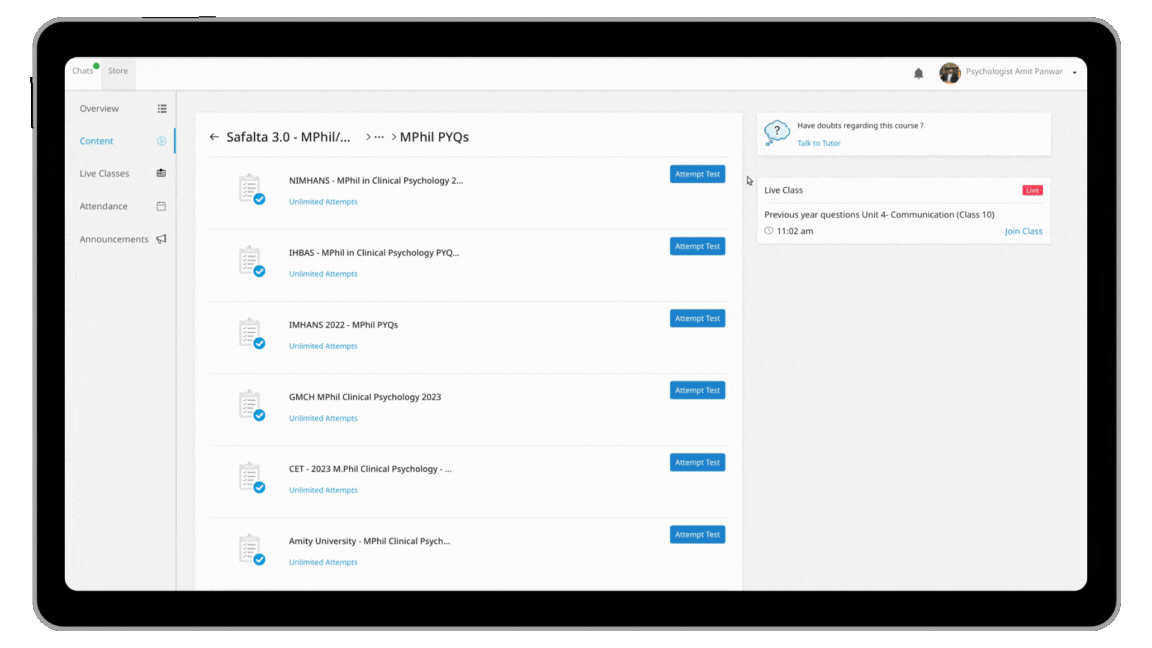
Practice Rare Previous Year Papers
Power Within's SAFALTA course offers aspirants with the rare Previous year papers of MPhil in Clinical Psychology which provides details insights into the pattern and the kind of questions asked in the major exams for MPhil, such as, IHBAS, NIMHANS, CIP, RML, and many more.
🎯 SAFALTA Batch: Your Gateway to M.Phil / MA Clinical Psychology Success!
Are you preparing for M.Phil Clinical Psychology, MA Clinical Psychology, PsyD, or PGDCP entrance exams?
✅ What You Get:
🔹 Complete Syllabus Coverage (RCI Approved Pattern)
🔹 Live & Recorded Classes by Expert Faculty
🔹 Unit-wise MCQs + Past Year Paper Discussions
🔹 Mock Tests with Explanations
🔹 Special Doubt Clearing & Mentorship Sessions
🔹 Multiple Validities
🔹 Suitable for NIMHANS | CIP | RINPAS | IHBAS | and more entrance exams
🚀 Let your preparation meet its destination — SAFALTA is waiting for you!
📞 Enroll Now at 9090395953
🌐 www.powerwithinpsychology.com
